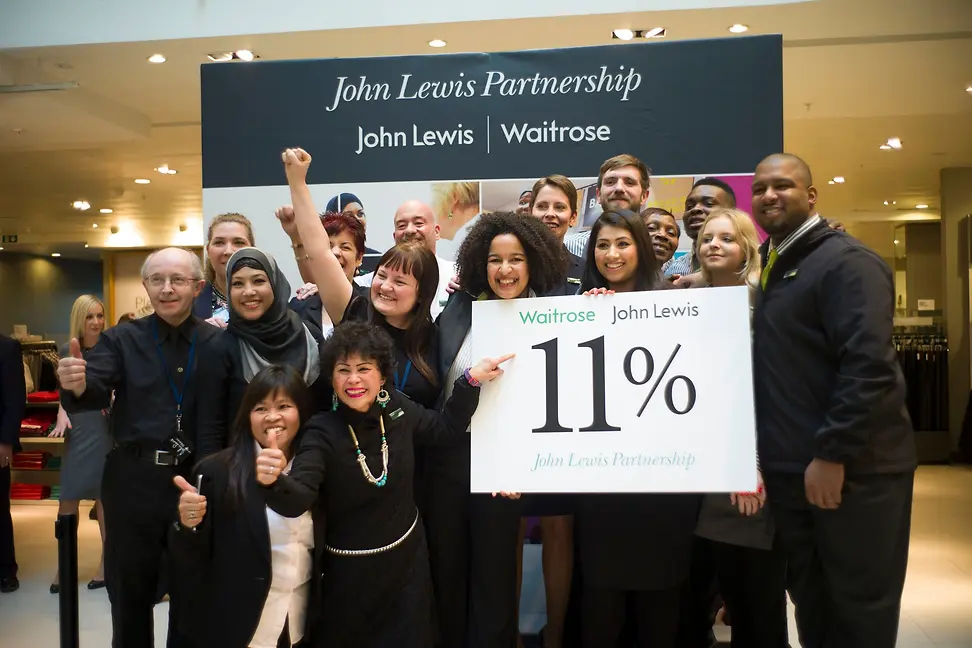- Home
-
Private banking
-
LGT career
"People first" has become a buzzword, a form of corporate lip service that often nods to the importance of employees without offering any action to back it up.

But what if putting people first wasn't just empty rhetoric? What if it was the key to unlocking the full potential of a firm's most valuable asset: its people?

If you peel back the layers of this oft-quoted concept, its genuine power is clearly revealed. It's not just about superficial perks or token gestures, like offering a free bar, or free snacks. Genuine people first leadership runs deep, creating a culture where employees feel valued, respected, and empowered. And make no mistake, this isn't just a feel-good initiative, it's a strategic imperative with a real and positive impact on the bottom line.
We expect our colleagues to work hard and in return, we treat them extremely well

Research backs up this approach. Gallup's recent employee engagement survey shows that engaged employees are "more present and productive, they are more attuned to the needs of customers, and they are more observant of processes, standards and systems." What's more, "The behaviours of highly engaged employees result in a 23% difference in profitability."
Similarly, McKinsey's research on over 1,000 organizations, encompassing more than three million individuals, suggests that the companies with the best culture "post a return to shareholders 60 per cent higher than median companies and 200 per cent higher than those in the bottom quartile." These aren't just numbers on a spreadsheet; they represent the tangible impact of prioritising people in business.

But what does putting people first look like in practice? The John Lewis Partnership, the parent company of two leading British retailers, provides some inspiration. The Partnership is owned by its employees, who are called Partners. They have a say in the company's decisions and also share in its profits. This unique structure fosters a sense of ownership and pride among employees, which is reflected in John Lewis's reputation for exceptional customer service and loyalty.
While the firm has faced plenty of challenges in recent years, including store closures and restructuring efforts, many of its retail peers and a host of high street retail chains have permanently closed their doors and gone out of business. Indeed, on the same day that a PwC report suggested that chains closed 11,530 stores in 2023, John Lewis announced a surge in customers and a return to profitability. So its partnership model has provided a solid foundation for navigating difficulties and positioning the company for future growth.

American Express is another good example of the power of putting people first. Its CEO, Stephen Squeri, brings his father's philosophy to work, explaining that "he treated everyone the same way regardless of whether they were a stock person, or a superior, or a peer. He treated them all with total respect and as a result he got total respect." Squeri has been successful at ensuring that American Express employees are motivated "not just by how they can keep the company in business, but how they can make the business better." This seems to be paying off handsomely: the company posted record revenues and profits in 2023.

In the arena of sport, leadership dynamics have evolved too, as exemplified by Ben Stokes, the England cricket captain, who has transformed from 'alpha male' to master psychologist. Stokes's approach has revolutionised England's results. His management skills have galvanised England, with his clarity of message and the courage of his convictions key to his outstanding record as test captain. Two simple traits but integral to people first leadership.

And look at the Pittsburgh Steelers, the famous American football franchise. Under coaches like Chuck Noll, Bill Cowher, and Mike Tomlin, and with the same owners since the team was founded in 1933, the Steelers prioritise a family-like atmosphere. This approach yielded six Super Bowl championships and numerous playoff appearances. Beyond wins, the Steelers' commitment to player and community welfare underscores that prioritising collective well-being breeds athletic success and a legacy of resilience and community impact. The genuine power of putting people first lies in its ability to drive organisational success.
So if you're a leader looking to build a people first business, how should you start? Begin by defining your core values and mission statement. Try to cultivate a positive work environment where open communication, collaboration, and feedback are encouraged. And above all, lead by example, demonstrating commitment to putting people first in every decision you make.
It may sound deceptively simple, but it takes great determination; diligence in fostering a culture of empathy, respect and inclusivity; as well as a genuine commitment to continuously evolving and improving. As countless success stories have shown, this is an approach that yields immense rewards. By putting people at the centre of their operations, leaders can create sustainable businesses that not only weather storms, but also thrive and leave a lasting legacy of positive change.
... the returns, both in terms of business success and personal fulfilment, are well worth it. Seek out mentors, advisors, and fellow entrepreneurs who share your values and can offer guidance and support along the way. And keep in mind, the biggest investment when laying the foundations for a people first business isn’t necessarily money, it’s leadership.